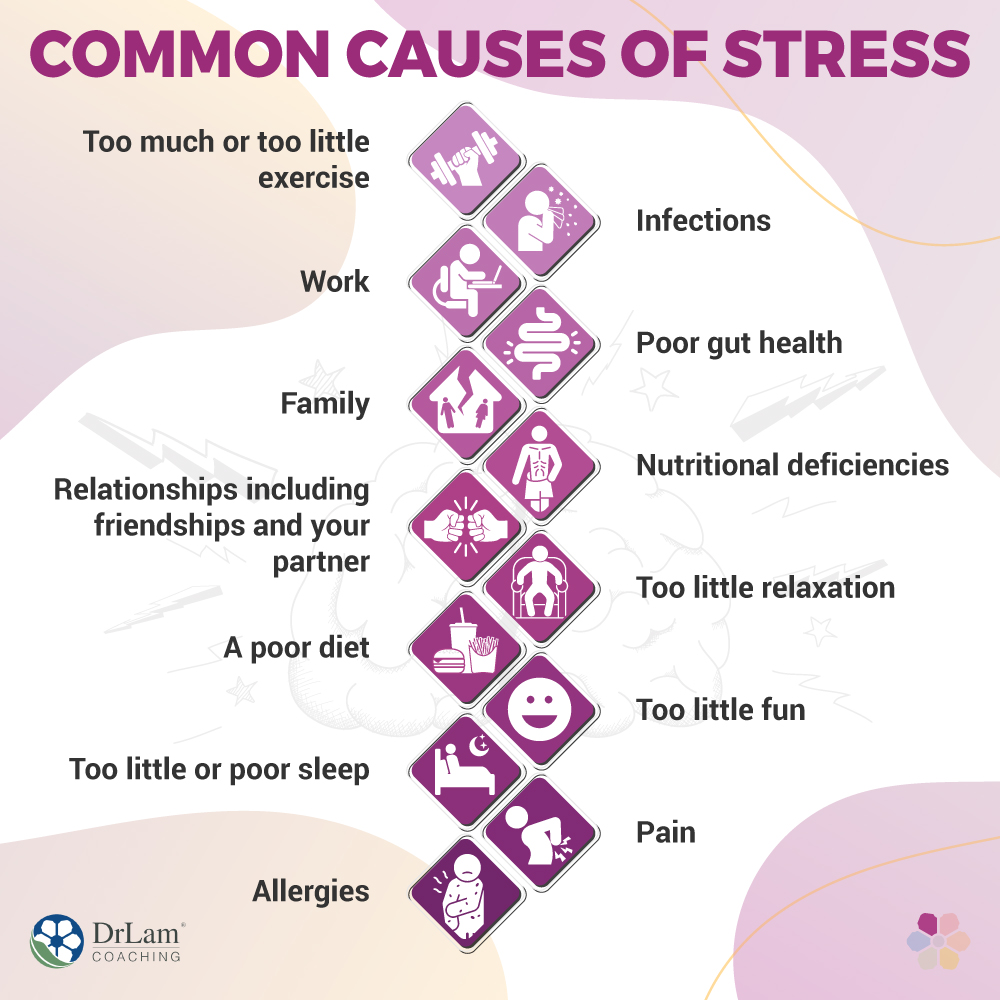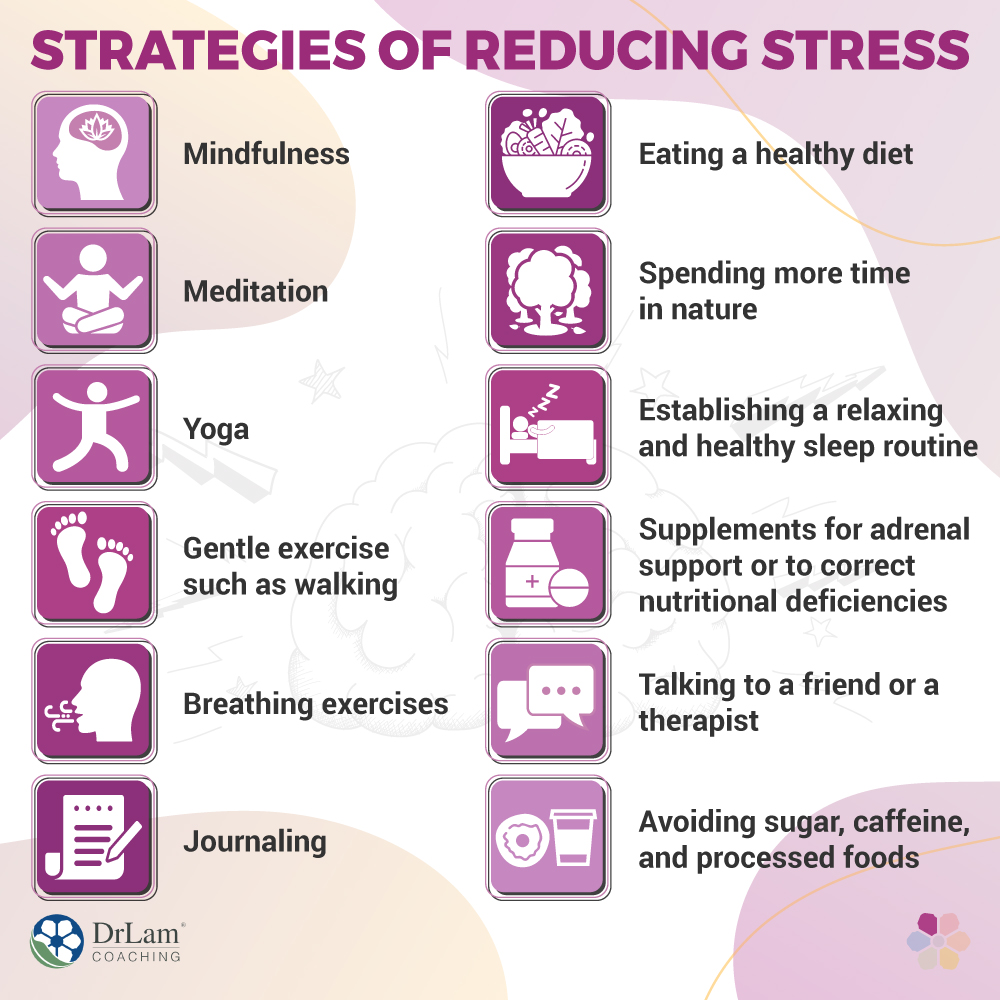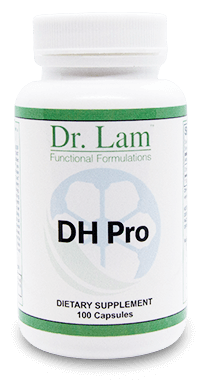 Do you feel tired all the time? Struggle to lose weight? Deal with unusual symptoms ranging from cold sensitivity to chronic infections? Then, you may be suffering from adrenal fatigue. This little-known condition is linked to chronic stress, and it’s becoming a serious problem in the modern world and adrenal fatigue is affecting your hormones.
Do you feel tired all the time? Struggle to lose weight? Deal with unusual symptoms ranging from cold sensitivity to chronic infections? Then, you may be suffering from adrenal fatigue. This little-known condition is linked to chronic stress, and it’s becoming a serious problem in the modern world and adrenal fatigue is affecting your hormones.
Adrenal fatigue can cause a range of symptoms and health problems. And these problems aren’t always related to the functioning of the adrenal glands either. One of the often ignored or misunderstood issues that is strongly associated with adrenal fatigue is hormone imbalances. So, here’s a look at how your adrenal fatigue is affecting your hormones and what you can do about it.
Adrenal fatigue is related to chronic stress, the kind of stress that too many people experience in the modern world. Whether it's work, a relationship, your diet, or your exercise routine that's stressing you out, this causes the kind of stress that continues day after day.
When you’re stressed, your adrenal glands release high levels of cortisol. Cortisol affects your body’s organs in ways that help you survive the cause of the stress. The hypothalamus-pituitary-adrenal (HPA) axis controls this stress response. When you encounter a stressful event, the hypothalamus and pituitary gland in the brain prompt the adrenal glands to release cortisol along with all the other stress hormones.
For example, if you confronted a predator in the forest, cortisol and the other stress hormones would give you more energy by shutting down non-essential functions such as digestion and reproduction. It would also sharpen your senses and prepare you for injuries. This would help you survive the predator. And once you escaped, your body would bring your cortisol levels back to normal and your organ systems would start functioning normally again too.
But when you experience chronic stress, this return to normal can’t occur. Your body and its circuits stay in this stressed state. You may experience adrenal insufficiency as your adrenal glands struggle to keep up with their workload. And at the same time, your body will increase certain functions, such as your immune system, while shutting others down, such as digestion.
Over time, this stressed state can cause widespread imbalances throughout your body. These imbalances, over time, can turn into serious, if not life-threatening, health concerns. It can also be severely disruptive to your life, leaving you with strange symptoms, disrupting your sleeping patterns, and leaving you feeling wired but tired all the time.
Your NeuroEndoMetabolic (NEM) Stress Response also helps your body cope with stress. It encompasses six circuits of related organs and systems that work together to help manage stress, as well as perform other critical duties. Which circuit of the NEM is imbalanced helps identify the cause of the unusual and unrelated-seeming symptoms that can come with AFS.
Adrenal Fatigue Syndrome (AFS) affects all the circuits in the human body as well as their components. So, it makes sense that the symptoms it causes are so varied. Some of the common symptoms of this condition include:
 Ongoing, long-term fatigue
Ongoing, long-term fatigueWhen discussing how adrenal fatigue is affecting your hormones, you need to understand more about the HPA axis. When it’s constantly stimulated by stress, this axis can start to struggle to regulate the stress response properly. It may overreact or underreact, resulting in too much or too little cortisol as well as adrenal overwork. This is what leads to serious health problems.
One of the more troublesome issues that occurs with adrenal fatigue is hormone imbalances. This is because fertility isn’t considered to be important during stressful periods, so the production of sex hormones is disrupted. This can occur in a number of different ways. Here are some of the main hormones involved and how they’re impacted in adrenal fatigue:
DHEA is produced by the adrenal glands and is known as a precursor hormone. This means that the body turns it into other important sex hormones such as estrogen and testosterone. But when your adrenal glands are fatigued, they may struggle to make and release this hormone. This can severely impact your hormone levels in ways that will affect your fertility.
Progesterone is one of the most important hormones for fertility in women. Unfortunately, when your body is flooded with high levels of adrenaline, which is another hormone that’s released when you’re stressed, it prevents your body from using progesterone.
GnRH is one of the main sex hormones in the human body. But when your cortisol levels are high, they inhibit this hormone, which can severely affect fertility, suppress ovulation, and decrease sperm count.
This is another precursor hormone, which can be made either into stress hormones or sex hormones. But when you’re stressed, the body will naturally choose to turn this hormone into stress hormones. This is another way adrenal fatigue can deplete your body's ability to make necessary hormones.
Unfortunately, adrenal fatigue can affect your hormones in more indirect ways as well. This usually has to do with imbalances in the Hormonal Circuit. The Hormonal Circuit is part of your stress response and includes the adrenal glands, the thyroid, and the reproductive organs. This circuit uses the HPA axis and the hypothalamic-pituitary-gonadal (HPG) axis to perform its duties, and it’s essential for the production and regulation of hormones that are needed for fertility.
The three components in this circuit are hormonally dependent on each other to function properly. So, as the adrenal glands fatigue and start to struggle, the other two components will be negatively impacted. This impact can be clinical, subclinical, or physiological. This means that it may or may not show up in current medical tests.
As the adrenals fatigue, the thyroid gland and reproductive organs often malfunction as well. This causes imbalances in the entire circuit and additional stress, which will further fatigue the adrenals. Here’s how each component of this circuit can be impacted by adrenal fatigue:
 As the adrenals fatigue, it will impact the levels of almost all the hormones in your body.
As the adrenals fatigue, it will impact the levels of almost all the hormones in your body.
Cortisol levels can become too high, resulting in issues like obesity, muscle weakness, diabetes, high blood pressure, or high glucose levels.
Or they can become too low, causing fatigue, weight loss, muscle weakness, decreased appetite, and low levels of glucose and sodium.
You may also experience aldosterone imbalances when your adrenals are fatigued. Aldosterone plays a big role in blood pressure regulation, and whether it becomes too high or too low, it can lead to serious symptoms and health conditions.
The ovaries in women and the testes in men are the second components of the Hormonal Circuit. These organs both require hormones to be in balance to function at their best. As this component declines in health due to adrenal fatigue, it can cause a range of problems and symptoms.
In women with adrenal fatigue, the balance of estrogen and progesterone is often lost. This can cause infertility, mood disorders, weight gain, PMS, menstrual irregularities, and other associated problems.
In men, low or high testosterone levels will have a negative impact on fertility as well as energy and muscle density.
The thyroid is responsible for energy production and metabolism. It’s also responsible for producing hormones that are important for the functioning of the brain, heart, and muscles. That’s why symptoms associated with thyroid dysfunctions can be so devastating.
There are two main ways that your adrenal fatigue can affect your thyroid gland. Firstly, you may experience hypothyroidism, which is when the thyroid under-functions. This can cause fatigue, dry skin, thin hair, and constipation. Or you may experience overactivity of the thyroid, known as hyperthyroidism. This can cause everything from hair loss to anxiety, irritability, and hyperactivity.
If you believe that adrenal fatigue is affecting your hormones, then you need to see your doctor. They will order blood tests to rule out thyroid or nutrient deficiencies. The best test however to look for is a saliva test. You will need to do this test at home as it takes saliva samples at 4 different times over the course of a day. This will allow your healthcare practitioner to get a snapshot of your cortisol levels over time to look for any problems.
This test also takes other measurements, such as DHEA levels, which can be helpful in exploring what’s happening with your hormones and your health overall.
If your adrenal fatigue is affecting your hormones, then you need to think about a recovery plan. Unfortunately, recovering from adrenal fatigue isn’t easy, and it’s usually best that you get the guidance of an experienced healthcare practitioner. This is because, when you have adrenal fatigue, your body is very fragile. So even commonly recommended therapies and strategies to improve your health, such as taking up regular exercise, may cause additional stress, put more strain on your body and adrenal glands, and in some cases, lead to adrenal collapse.
And this applies even more if your hormones are badly unbalanced because it will mean that your whole body is even more sensitive. So, take it slowly through this process, and be kind to yourself.
An experienced healthcare practitioner will be able to guide you on your recovery path. They will teach you how to adopt healing strategies gently and in a way that suits your body and your condition.
There are two main components to recovering from adrenal fatigue and hormone imbalances, which are:
 Most people experience a wide range of stressors every single day of their lives. That’s why it can be so hard for you to identify which stressors you struggle with. Just remember that stressors aren’t always obvious. Sometimes they’re hidden or just accepted as a part of modern life.
Most people experience a wide range of stressors every single day of their lives. That’s why it can be so hard for you to identify which stressors you struggle with. Just remember that stressors aren’t always obvious. Sometimes they’re hidden or just accepted as a part of modern life.
When you’re looking to rid yourself of stress, here are some common causes:
And there are probably many more causes of stress too, ones that only you know about. So take the time to think about your life and what’s causing you stress. And then you can start looking at how to reduce or eliminate these stressors for better health and fertility.

The second component to adrenal and hormone recovery is to adopt healthy strategies that will help to heal your body. Some strategies that can be helpful with this include:

If adrenal fatigue is affecting your hormones, then it can be very difficult to manage on your own. Traditional medical strategies used to correct hormone imbalances will often just make your health worse, leaving the root cause, stress, unaddressed. They may even put you at risk of adrenal crash.
Here’s what you should do instead:
You don’t need to suffer alone when you have adrenal fatigue or its complications. By reaching out to knowledgeable help, you can get the support and strategies you need to feel and live well again.

DHEA, a vital adrenal hormone
If you’re wondering how adrenal fatigue is affecting your hormones, then you need to understand how the different circuits and organs in your body are impacted by adrenal fatigue. This condition can impact every part of your health and in sometimes unexpected ways.